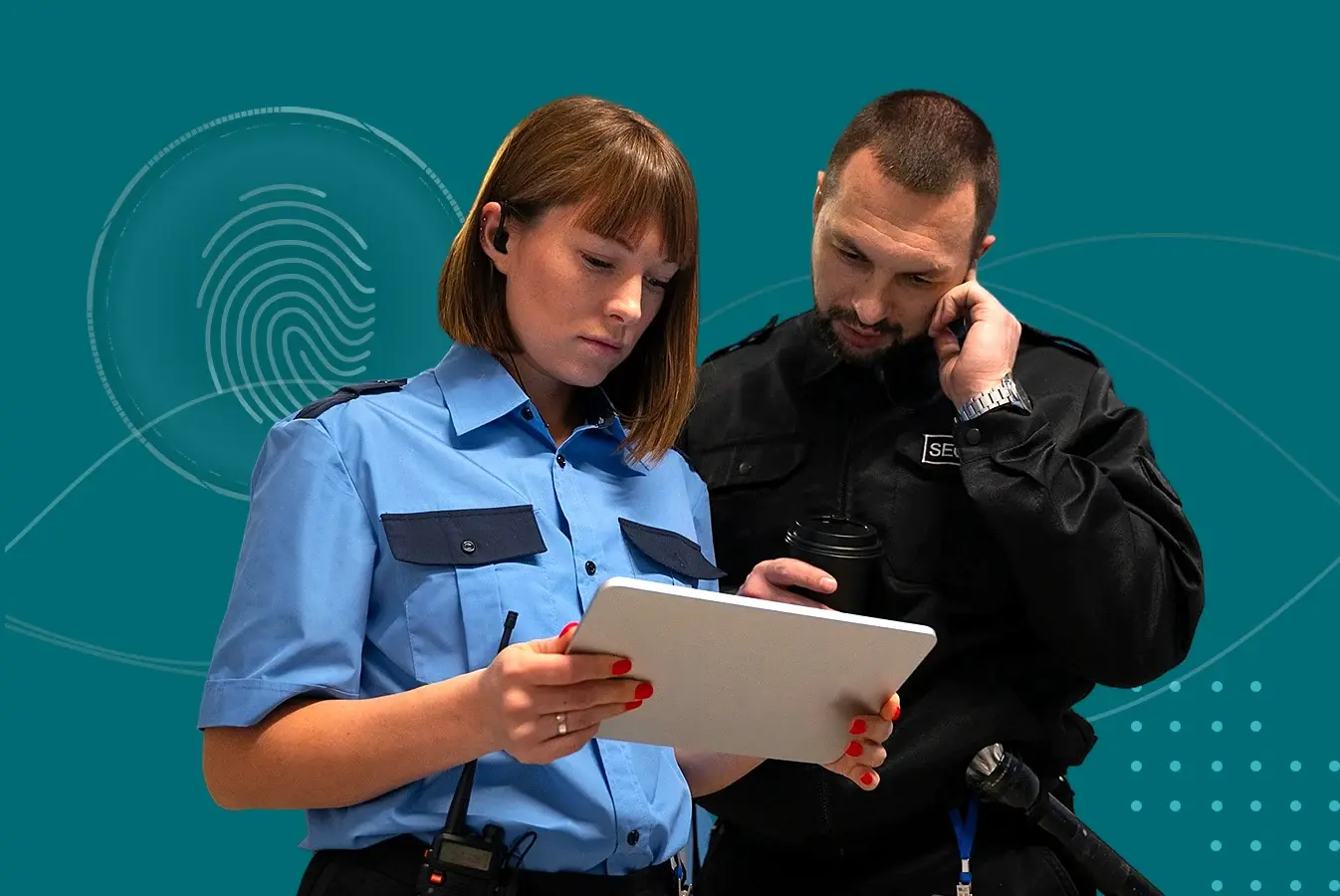As a matter of fact, 81% of officers are of the view that writing skills are important to the officer’s success. Forget AI writing tools. Redaction software can help law enforcement officers improve their writing skills to a greater extent.
Picture a day in the life of a cop: the exciting chases, gathering clues, and saving the city. Sounds Hollywood, right?
Well, the reality is quite different. Here's something you might not know – a big part of their time isn't all action.
It's about writing super important case reports – like putting together pieces of a puzzle that hold the truth. These reports are used as evidence in court, to investigate crimes, and even to track crime patterns.
In certain circumstances, these reports need to be made available to the public for scrutiny under the Freedom of Information Act. Hence, the importance of proper case documentation and strong police writing skills becomes even more crucial.
Have a burning desire to improve your police writing skills? Try the leading AI-powered redaction software for free for 7 days.
The Need for Redaction Software in Police Writing
The latest tech solutions can help the police forces quickly write, manage, and document cases. The police force processes the case information to make it available to the public within a specified amount of time by law.
However, the question is whether police reports can be made public without needing redaction software.
The answer is no. Because revealing certain details prematurely could potentially compromise ongoing investigations, endanger the lives of witnesses, or hinder the legal process.
Thus, the need for redaction software emerges as an important tool for law enforcement officers to process and redact important information in their case reports easily.
In this blog, we will be discussing the challenges faced by officers in case documentation and why redaction software is the go-to solution for law enforcement officers to improve their writing skills.
What Is Policing Writing?
Police writing encompasses communication that police officers engage in as part of their daily duties. From incident reports and case summaries to memos, emails, and official documents, these written records form the backbone of effective communication within the law enforcement community and beyond.
Why is Effective Police Writing Important?
Police writing goes beyond writing. It means knowing what to put in or leave out of documents, how to arrange and organize words, using the right tone and phrases, and being careful not to make common mistakes.
Here is why effective writing in policing is important:
Clarity for Investigation and Prosecution
Clear and well-structured reports provide investigators with a roadmap. They offer a detailed account of events, helping officers reconstruct timelines, identify patterns, and make informed decisions.
Prosecutors rely on these reports to build strong cases. Any ambiguity or confusion could hinder justice and prevent cases from closing faster.
Transparency and Accountability
Transparent communication through well-written reports fosters trust within communities. The public has the right to know what's happening in their neighborhoods. Properly documented incidents show that law enforcement agencies are committed to openness and accountability.
Accurate Documentation for Legal Proceedings
In legal proceedings, details matter. Accurate reports ensure that essential information is preserved and ready to be presented as evidence in court. Well-written accounts help attorneys, judges, and juries understand the context and nuances of cases.
Communication in Bureaucracies
Police officers operate within complex bureaucratic systems, where written communication plays a crucial role in exchanging thoughts, conveying information, seeking approval, and coordinating actions among different units.
Challenges Faced in Police Report Writing
Police reports are classified as legal documents that require the expertise of trained professionals. Every detail holds importance, and even a minuscule error in a police report could have far-reaching consequences. Hence, it becomes a challenging feat to achieve for police officers.
Following are the challenges faced by law enforcement officers when writing:
Time Constraints
Police officers often function in high-pressure environments where time is a scarce commodity. The urgency to respond to incidents in a split second and manage multiple tasks can lead to rushed, half-baked documentation.
Legal Requirements
Reports must adhere to legal standards. Hence, officers need to ensure they document evidence properly and provide accurate information for potential legal proceedings.
Furthermore, when publishing the report to the public, personally identifiable information (PII) and other sensitive data are supposed to be removed from documents.
Digital Tools and Technology
While digital tools can enhance documentation, officers may struggle with using new technology for report writing, leading to errors or incomplete records. Hence, software with a high learning curve becomes counterproductive for law enforcement officers.
Tradeoff Between Speed and Accuracy
In police work, balancing speed and accuracy in documentation is vital, as reports impact court proceedings and transparency. With the rising importance of precise reporting, officers should navigate how to document time-sensitive details without weakening the case.
Benefits of Redaction for Police Writing
Redaction is commonly used in police writing, legal documents, and various forms of information disclosure to protect sensitive information while allowing the release of non-sensitive information. It ensures that only authorized individuals can access certain details while preserving the integrity of the document's content.
Police officials often face short deadlines imposed by various state organizations for providing redacted document files. Complying with public records and privacy regulations requires officers to allocate their already limited resources toward preparing files for the public, media, and prosecutors.
The relationship between redaction and police cannot be overlooked. The targeted redaction of sensitive information directly influences the accuracy, transparency, and compliance of law enforcement documentation.
Redaction software can assist an officer by making their job easier in the following ways:
Efficient Workflows
Redaction software streamlines the document review and approval process by clearly indicating which parts of the content should be removed or obscured. This ensures that relevant parties can quickly review and approve documents, saving precious time and maintaining accuracy.
Increased Productivity
Police officers spend a lot of time drafting reports. Moreover, when it comes to making the report available for others, removing sensitive information from large reports manually requires additional time and effort.
Law enforcement officers can get a time-saving advantage by automating the process of removing sensitive information from various documents. This efficiency allows law enforcement agencies to allocate more time and focus on solving cases.
Privacy Protection and Compliance
Legal compliances do not allow some information to be disclosed. Redaction software helps police departments adhere to legal and ethical standards by safeguarding the privacy of individuals involved in cases.
Personal information, such as names, addresses, social security numbers (SSNs), credit card information, contact details, and more, can be automatically redacted to prevent unauthorized access or identity theft.
Enhanced Information Sharing
Redaction software facilitates efficient and secure information sharing within and outside law enforcement agencies. By carefully removing sensitive details, documents can be shared with relevant parties, such as legal teams, without exposing potentially harmful information.
How VIDIZMO Redactor Improves Police Writing Skills?
VIDIZMO Redactor helps law enforcement officers enhance their writing skills, thereby making their jobs easier, through the following capabilities:
Smart Keyword Search
VIDIZMO Redactor enables you to locate specific words and phrases that hold personal or confidential data within documents. With just a couple of clicks, you can spot and redact these keywords, minimizing time and effort expenditure.
Pattern-Based Redaction
VIDIZMO Redactor lets you save time by redacting sensitive information, including zip codes, credit card details, SSNs, taxpayer identification numbers, and more, by selecting preset patterns or creating your own.
Precision in Manual Text Selection
VIDIZMO Redactor offers the freedom to manually choose text sections within documents and create precise redaction boundaries using bounding boxes.
Streamlined Bulk Document Redaction
When managing a substantial document load, efficiency becomes paramount. With VIDIZMO Redactor, you can select numerous documents and execute automated redaction concurrently, optimizing both time and effort.
OCR-Based Redaction
Leveraging optical character recognition (OCR), VIDIZMO Redactor efficiently redacts scanned documents and handwritten notes, broadening its scope beyond conventional text-based PDF documents.
What else? VIDIZMO Redactor offers other major features, including audio, video, and image redaction. In terms of security, the CJIS-compliant redaction solution offers comprehensive encryption, password protection, SSO integration, and a lot more with flexible deployment options.
Eager to know more about VIDIZMO Redactor. Click here to get a deep dive into our best-in-class redaction solution.
Improving Police Writing Skills with Redaction Software
It may be evident now that writing is part and parcel of the law enforcement job. Redaction software empowers law enforcement professionals to enhance their writing and present their insights and cases in a better way with targeted redaction of confidential information from case files or other media.
Ready to elevate your police writing game? Sign up for a 7-day free trial of VIDIZMO Redactor.
Posted by Rafey Iqbal Rahman
Rafey is a Product Marketing Analyst at VIDIZMO and holds expertise in enterprise video content management, digital evidence management, and redaction technologies. He actively researches tech industries to keep up with the trends. For any queries, feel free to reach out to websales@vidizmo.com





